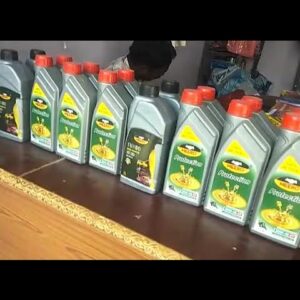LPG (Liquefied Petroleum Gas) pipes are critical components in the distribution of gas for domestic and industrial uses. These pipes must be highly durable and resistant to corrosion. With the growing demand for LPG in domestic cooking and in industrial applications, the manufacturing of LPG gas pipes is a lucrative business. The government’s focus on increasing LPG coverage across India ensures consistent demand for LPG gas infrastructure.
Scalability and Profitability
LPG pipe manufacturing is scalable, and businesses can expand by adding production lines to cater to different grades and types of gas pipes, such as high-pressure or flexible pipes.
- Profitability: Businesses in this sector can expect margins of 15–20%, with higher profits achieved through bulk orders from energy companies and municipalities.
Subsidy Opportunities
Relevant Schemes and Departments:
- Ministry of Petroleum and Natural Gas:
- Offers financial incentives and subsidies for companies that provide essential infrastructure like gas pipelines.
- MSME:
- Credit Linked Capital Subsidy Scheme (CLCSS): Offers subsidies for technology and machinery upgrades for LPG gas pipe manufacturing.
Eligibility Criteria for Subsidy
- Must be registered as an MSME.
- Should follow safety standards and government regulations for manufacturing gas-related equipment.
Project Cost and Subsidy Details
- Setup Cost: ₹30–50 lakhs, including machinery for pipe extrusion, testing, and packaging.
- Subsidy Amount: Typically, the government offers a subsidy of up to 25% for machinery and technology costs.
How to Apply for Grants
Applications can be submitted to the
MSME Portal or local industrial bodies responsible for energy infrastructure development.
Future Potential
With the rapid increase in LPG distribution networks, this industry is set to grow. Partnerships with public and private sector energy distributors will continue to be a key driver.
To apply for the Food Processing Scheme, the following mandatory documents are required for new enterprises (Individuals/Firms) as outlined in the manual
1. PAN Card of concerned/all promoters.
2.Aadhaar Copy & Photo of all promoters/guarantors.
3. Address Proof: Any of the Officially Valid Documents (OVD) such as:
o Utility bill (not more than two months old) from any service provider (Electricity, telephone, post-paid mobile phone, piped gas, water bill).
o Property or Municipal tax paid receipt.
o Ration Card (Individual).
o Driving Licence
o Aadhaar Card.
o Voter ID Card.
4. Details of the site where the unit is to be established, including whether it is owned/rented/leased, along with proof (Lease/rent agreement should be for more than the loan repayment period).
5. Photocopy of Bank
6. Estimates and Quotation of all capital expenditure and machinery and equipment to be purchased. Statement/Bank Passbook for the last 6 months.
For existing enterprises with a turnover of less than 1 crore, similar documents are required, including PAN Card, Aadhaar, address proof, and site details.
If you need more specific information or additional documents, please let me know!















